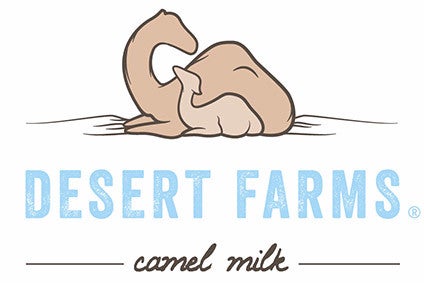
The US is to host the first production and sales of infant formula produced from camel milk from next year, just-food can reveal.
Camel milk producer Desert Farms, which was founded in California in 2014, said the production and sale of the formula in the US will be part of an investment programme costing upwards of US$2m.

Discover B2B Marketing That Performs
Combine business intelligence and editorial excellence to reach engaged professionals across 36 leading media platforms.
Director of operations Haytam Abdelmouttalib told just-food today that, following the launch in the US, the formula is then set to be made available in Europe, followed by the Middle East and Asia.
Abdelmouttalib said: “As with any food product, camel milk has to be compliant with all the regulatory agencies and the infant formula/baby food is one of the most regulated. Our milk has actually been recommended by paediatricians in Los Angeles due to its to composition being very close to mothers’ milk.”
Abdelmouttalib said the company will be working in partnership with an as yet unnamed co-packing company in the US “as it is very cost prohibitive to build your own infant formula facility”. “There are only four major infant formula manufacturers in the US, so it will be one of them.”
“Camel milk is closest milk to mothers’ milk, it’s a non-allergen and suitable for those with lactose intolerance,” Abdelmouttalib said. “It mimics the same properties as colostrum so it has high levels of lactoferrin and immunoglobins. Camel milk is currently recommended in the US by paediatricians and physicians to children with autism or food allergies.”

US Tariffs are shifting - will you react or anticipate?
Don’t let policy changes catch you off guard. Stay proactive with real-time data and expert analysis.
By GlobalDataAbdelmouttalib told early nutrition industry leaders at an international conference in London last month Desert Farms works with eight camel farms across the US and the milk is sold in the country through several retailers.
As there are around 18,000 cows to every camel in the US, the impact of camel milk on the “traditional” dairy industry is not going to be transformational. In addition, one camel produces only about seven litres of milk per day compared to a single cow’s average daily quota of 40 litres.
However, Abdelmouttalib said the company is investing in developing its product for its unique qualities – which the company said are becoming increasingly attractive to the health conscious and those with specific dietary requirements.
Camel milk is familiar to consumers in the Middle East, but is unknown to most living outside of that part of the world. Camel milk naturally contains 50% less fat and saturated fat than US cows’ milk. Camel milk is also rich in protein, calcium and vitamin B1, with an 8oz glass providing 70% of the daily value of the latter.
Desert Farms also has a handful of camel farms across Europe and, in addition to infant formula, Abdelmouttalib said the company is on course to introduce a range of other products derived from camel milk including cheese, chocolate, butter and ice cream.



